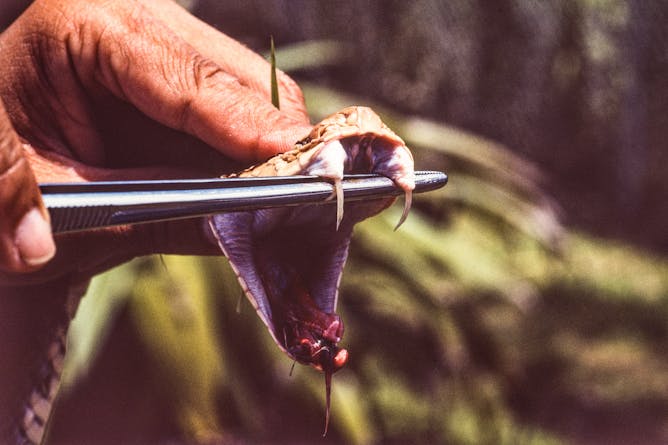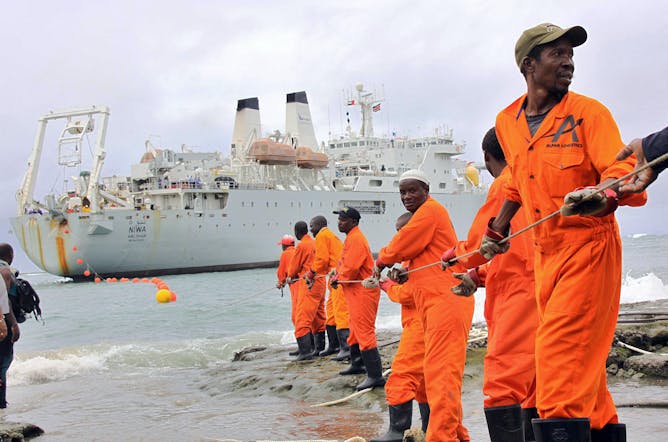|
More than 100,000 people are killed by snakebites each year, and hundreds of thousands more are badly maimed. Africa is one of the most affected regions. Scientists around the world are hard at work developing new antivenoms to save lives. Christoffer Vinther Sørensen, Andreas Hougaard Laustsen, Bruno Lomonte and Julián Fernández thought they’d cracked the code on one such antivenom – but it failed at the last hurdle. They explain why that’s actually good news for the antivenom research community.
Failures on four of the fibre optic cables that run beneath the world’s oceans left large parts of central and west Africa, along with some areas in southern Africa, without internet connection last week. Jess Auerbach Jahajeeah, who is writing a book about fibre optic cables and digital connectivity on the continent, outlines why these cables are important and the historical significance of the routes they follow.
|

|
Natasha Joseph
Commissioning Editor
|
|

Christoffer Vinther Sørensen, Technical University of Denmark; Andreas Hougaard Laustsen, Technical University of Denmark; Bruno Lomonte, Universidad de Costa Rica; Julián Fernández, Universidad de Costa Rica
By reporting this new way that future antivenoms can fail, the research has highlighted a problem with current antivenom testing recommendations.
|
|
|

Jess Auerbach Jahajeeah, University of Cape Town
Fibre optic cables now literally encircle Africa, though some parts of the continent are far better connected than others.
|
|
|

Manu Lekunze, University of Aberdeen
Cameroon’s rebels don’t have the unity, funding or logistics to achieve their aims.
|
|
|

Thokozani Simelane, Human Sciences Research Council
South Africa’s national survey of food and nutrition security identifies the areas most in need.
|
From our international editions
|
-
Chantal Gautier, University of Westminster
People in their 20s and 30s are more likely than any other age group to experiment with AI pornography.
|
|
|
|
-
Duane Mellor, Aston University
Plenty has been said about the health benefits of fasting, but what about as a religious practice?
|
|
|
|
|
|
-
Richard L. Abel, University of California, Los Angeles
Donald Trump tried to overturn the 2020 election results. But the work of others, from lawmakers to judges to regular citizens, stopped him. There are cautionary lessons in that for the 2024 election.
|
|
|
|
-
Shaomin Li, Old Dominion University
In China, ‘private’ businesses aren’t entirely private and the ultimate boss is the CCP, not the CEO.
|
|
| |
|
|
20 March 2024
•
Cape Town
|

|
3 - 24 April 2024
•
Cape Town
|

|
13 April - 10 May 2024
•
Cape Town
|

|
17 April 2024
•
Cape Town
|

|
|
|
|
| |
| |
| |
Would you like to republish any of these articles?
|
|
It’s free to republish, here are the guidelines.
Contact us on africa-republish@theconversation.com in case you need assistance.
|
| |
| |
| |
| |
|
|